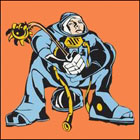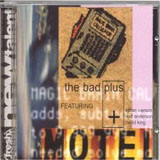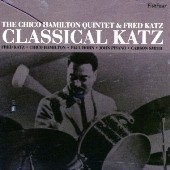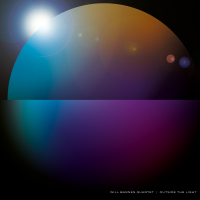Home » Jazz Articles » Interview » The Bad Plus: Drama, Joy, Humor, But Not Irony
The Bad Plus: Drama, Joy, Humor, But Not Irony
'Tom Sawyer"
AAJ: I think the last song I'll mention is your cover of Rush's 'Tom Sawyer." What I really love about this one is that it is just an arrangement.
DK: Absolutely.
AAJ: All the salient features of the original recording are there—Reid takes the vocal melody for that 'Today's Tom Sawyer he gets high on you" part, so Ethan can handle the descending synth melody, for example. Or Ethan' frenzied, psychotic piano solo approximates Alex Lifeson's guitar solo on the original.
DK: Yeah, that's insane. My favorite part of the record, easily, is that solo. And we're doing the ostinato just like Rush, and he just takes off on that—it sounds like Steve Reich or something. When he did that, we were all like, 'well, that's done.
We love the tune. 'Tom Sawyer" was in the wind for a long time for the band before we actually attempted it. Because everyone loves that song; you can hate Rush and love that song. It's okay to like 'Tom Sawyer." It's a great song. And it's also a great arrangement—there's a great guitar solo, there are all these little odd meters here and there, and there's a drum solo that we thought we'd do exactly the same. I thought I'd do the four-piece kit version! I didn't analyze it too closely, but I think it's pretty close to the original. I think I missed one or two little accents, but hey, [Rush drummer] Neil Peart had, like, nine cymbals. I only have two, so I'm going to miss one of the cymbal hits here and there.
There's an interesting story about this tune, though. We played the North Sea Jazz Festival last year, and they had a thing where they had us doing an open-form question-and-answer. What we thought we'd do was arrange a tune in front of them. So there was a whole forum of people, and we just sat on stage arranging 'Tom Sawyer."
So it got arranged live in front of an audience. And we weren't even addressing the audience [laughing]; we were just talking to each other, arranging a tune. And that was the clinic!
AAJ: Well, it is a clinic, because the tune couldn't be better arranged using the tools you had of piano, bass and drums.
DK: Yeah. Like during that part with [singing] 'the world is, the world," we were trying to make the elements more dramatic. I'm glad you like it, because we worked hard on it.
AAJ: That 'the world is, the world is" section is where you sort of let the rhythm dissolve.
DK: Right. It gets very chiming, and Ethan's kind of playing it rococo, with that Liberace tendency every now and then. And that's what makes him so awesome—he's so willing to go there, and put his whole heart into it. The melody needs to be spoken that way [singing the phrase in a florid Liberace phrasing and laughing].
By the way, we played that in Toronto and, oh my god. Think about what it means to Toronto. That band—that's the band from Toronto! Rush is the band from Toronto! We were playing with [trumpeter] Roy Hargrove in February, and we ended the night with it.
And people came up to us after the show that know Rush—a couple of Neil Peart's friends were there, and everyone was reacting so positively. We thought, 'Thank god," because Reid and I loved that band. We would hate for anyone to be taking that ironically, because that is a flat-out homage to that band.
AAJ: Again, you wouldn't bother to so perfectly arrange a song you were ridiculing.
DK: Right. And a lot of these guys are going to come see us when we roll into town, because they know we're a sort of progressive band—we're not a straight-ahead jazz group or a rock group. And those friends of theirs thought Rush was going to love it. So we were very happy that night.
class="f-right">
The Process of Covering Tunes
AAJ: I have this image of fans besieging you at gigs with what they think are brilliant ideas for songs you should do. 'You should do 'Shine On You Crazy Diamond!"
DK: Yes, we do get that. 'Shine On You Crazy Diamond?" Oh, that actually might be the one.
AAJ: Well, would you play all its parts or play an abbreviated version?
DK: Oh, that's a tough one. We have been discussing Pink Floyd for a few years now. One of theirs we were just tossing around, which almost made it to the rehearsal phase, was 'Run Like Hell." Because of that part [sings the central guitar riff]—we could make that a moment that keeps reappearing.
AAJ: You guys could murder that rhythmically.
DK: It would be fun. But people definitely throw suggestions in the hat.
AAJ: Do you ever listen to them?
DK: Not really. It's a very delicate process to cover tunes. Because Iverson doesn't know any rock music. That's actually really true. He never listened to rock music.
AAJ: So it's just you and Reid. Do you just play Ethan the record of 'Tom Sawyer," say?
DK: Exactly. Basically Reid and I come up with an idea. Sometimes Ethan has an idea for something he's heard recently—and he has no sentimental attachment to it. There's none of that 'Oh man, I danced to that at the prom." He's got none of those feelings, so he approaches everything like, 'Hmmm, Kurt Cobain liked to use open fifths, just like Stravinsky does."
And he always wants to see the lyrics, because he wants to know what the statement is. When he was listening to 'Tom Sawyer" for the first time, he loved the lyrics. We were in an airport in Poland, I think, and he's standing there with these giant headphones on his head, talking really loud: 'Is he saying 'the myth?' What is he saying there?" Yelling these Neil Peart lyrics across the airport. ''Catch the mystery'? What does that mean?"
But doing a cover does require that Ethan love the tune as much as we do, because we don't want to do anything that everyone doesn't love. Also, there should be a melody and some harmony that can stand up to some sort of deconstruction or rearrangement. So that's where these covers come from. And I think it was Iverson that thought of doing 'Chariots of Fire." He said he'd played it on the piano in grade school, and all the girls went crazy. So he did have a reminiscence about that one.
Anyway, we have this sort of invisible criteria about whether to do a song, and we might discuss it for a while, or try it out, and then roll with an arrangement. But it is a challenge to do. It's not easy for us, because every arrangement is totally different. We don't follow any formula with the cover tunes. So for the Tears For Fears tune, we wrote a bridge. That's our bridge. We reharmonized this kind of jazz bridge on it because it didn't have a bridge, and we wanted one.
And sometimes it takes a while just to get the conception for one off the floor. Right now there are a couple of new things in the works that we might begin rehearsing. One is [Led Zeppelin's] 'Kashmir." We thought we'd swing 'Kashmir." That's right—a swinging 'Kashmir."
AAJ: I am having a hard time picturing that. It's very off-beaty, but it's not swinging.
DK: Well, like this—[sings some of the familiar syncopated phrases from the song in a jazzy scat:] zah-zah-zoo-zah-zah-zah-zoo-zah.
AAJ: I think I get it now.
DK: It's got to have the exactly right tempo to make it work. And there are some other things we're talking about, but nothing in the rehearsal stage now except what you hear on that record and the extras from the recording. We did a Bee Gees tune—we recorded 'How Deep Is Your Love" as a ballad, and that is an incredible song. The changes are amazing. We do it as this dark, tears-on-the-dance floor ballad. It's pretty effective. We also recorded a tune called 'Narc" by the rock group Interpol.
AAJ: Oh, I love that band. I remain deeply impressed by the Interpol album 'Narc" is on, Antics.
DK:: Oh, me too. Reid and I were really into it, and we threw that tune to Ethan, and he liked it too. That's actually another zone that Reid and I come from in a way—that kind of Joy Division/New Order/Depeche Mode early eighties sound, which Interpol draws from.
class="f-right">
Band Growth and Not Taking It For Granted
AAJ: Well, I have to tell you, on a more general note, that you don't sound very bored by playing in this band.
DK: No [laughing], it's exciting. And honestly, it's great to have anyone interested in what you're doing. We're all in our mid-thirties; we didn't just come out of nowhere. We spent fifteen years pounding out there, making records. So to have people call on the phone and ask about the music is a real gift, and none of us take it for granted. We know it can be taken away at any time. We're not these guys who were just handed shit. We all appreciate the chance to do this. It's exciting to be able to roll into cities and play your music. That's the dream.
AAJ: After all this time together, is there any dynamic of the band that is changing. Is there anything you do that's different from, say, the way you did it in 2003?
DK: I think so. We've been able to chart the growth of the band musically, professionally, and in every other way. I think because we play so much on the road, our language is that much more solidified. We've played together on and off since our teens, but never in as focused a way as we have since 2002. We started the band in 2000, but it was just a very roughshod beginning—we were trying to book concerts in New York, do whatever kind of touring we could, and be in Minneapolis too.

l:r: Ethan Iverson, Reid Anderson, David King
I would say that dynamically, we are so much more able to possess different colors. We're able to play more articulately loudly and more articulately softly. I think that's one of the ways that this record documents the growth of the band—I think this one really represents the last four years of touring. All the records seem to keep moving in this way where we're honing our concept—and we believe that concept is our own. We're confident that we do something that is different. We're not confident that it's great all the time; we're not confident that everyone should dig it. But we are confident that it's us, that it's a recognizable sound. That's a great victory, and we're not willing to let that go. We want that to keep growing.
And we want to keep expanding compositionally. Remember, we have three people writing in the band, so there are all these weapons that we have. It's a leaderless trio with three composers, three alpha personalities that battle for position—and that's where that energy comes from. But it's a high-functioning thing; we've been friends for so long that we're not friends because of the band, and that's what makes it so nice. Because at the end of the day, we're friends first—we were friends way before The Bad Plus. The Bad Plus isn't a reason for us to stay friends.
AAJ: There are a lot of bands who are not in that situation. And I've seen how those bands act at sound check.
DK: Oh, exactly! This is easily the highest-functioning band I've ever been a part of. At the end of the day, it's that history that we have. We don't have an agenda against each other. We know that it's a delicate chemistry that makes this thing happen, and we have to trust each other and allow each other room. And then it just happens. We get onstage and it works somehow.
Selected Discography
The Bad Plus, Prog (Do the Math/Heads Up International, 2007)
The Bad Plus, Blunt Object: Live in Tokyo (Columbia, 2005)
The Bad Plus, Suspicious Activity? (Columbia, 2005)
The Bad Plus, Give (Columbia, 2004)
The Bad Plus, These Are the Vistas (Columbia, 2003)
The Bad Plus, Authorized Bootleg (Self-released, 2001)
The Bad Plus, The Bad Plus (Fresh Sound New Talent, 2001)
Photo Credits
Top Group Photo: Courtesy of Heads Up International
Bottom Group Photo: Courtesy of AAJ Visual Arts Gallery
David King (drums) Photo: Juan-Carlos Hernandez
Ethan Iverson (piano) Photo: Eduard Markovich
Reid Anderson (bass) Photo: Courtesy of AAJ Visual Arts Gallery
Tags
PREVIOUS / NEXT
Support All About Jazz
 All About Jazz has been a pillar of jazz since 1995, championing it as an art form and, more importantly, supporting the musicians who make it. Our enduring commitment has made "AAJ" one of the most culturally important websites of its kind, read by hundreds of thousands of fans, musicians and industry figures every month.
All About Jazz has been a pillar of jazz since 1995, championing it as an art form and, more importantly, supporting the musicians who make it. Our enduring commitment has made "AAJ" one of the most culturally important websites of its kind, read by hundreds of thousands of fans, musicians and industry figures every month.





















